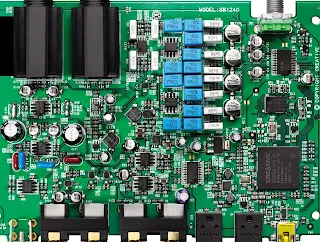 |
| CORDA ARIETTA |
See also audio tests of the headamp here.
 |
| Crossfeed filter frequency response. |
The frequency responses of the crossfeed filter are made by frequency analysis of white noise: one channel signal is for frequency responses of lowpass and highboost filters, mono two channels signal and independent two channels signal is for approximate stereo frequency response.
 |
| Crossfeed filter time delay response. |
The time delay response of the crossfeed filter are made by analysis of one channel sinusoidal signal.
See also original description of the Meier's crossfeed http://www.meier-audio.homepage.t-online.de/crossfeed.html.





























